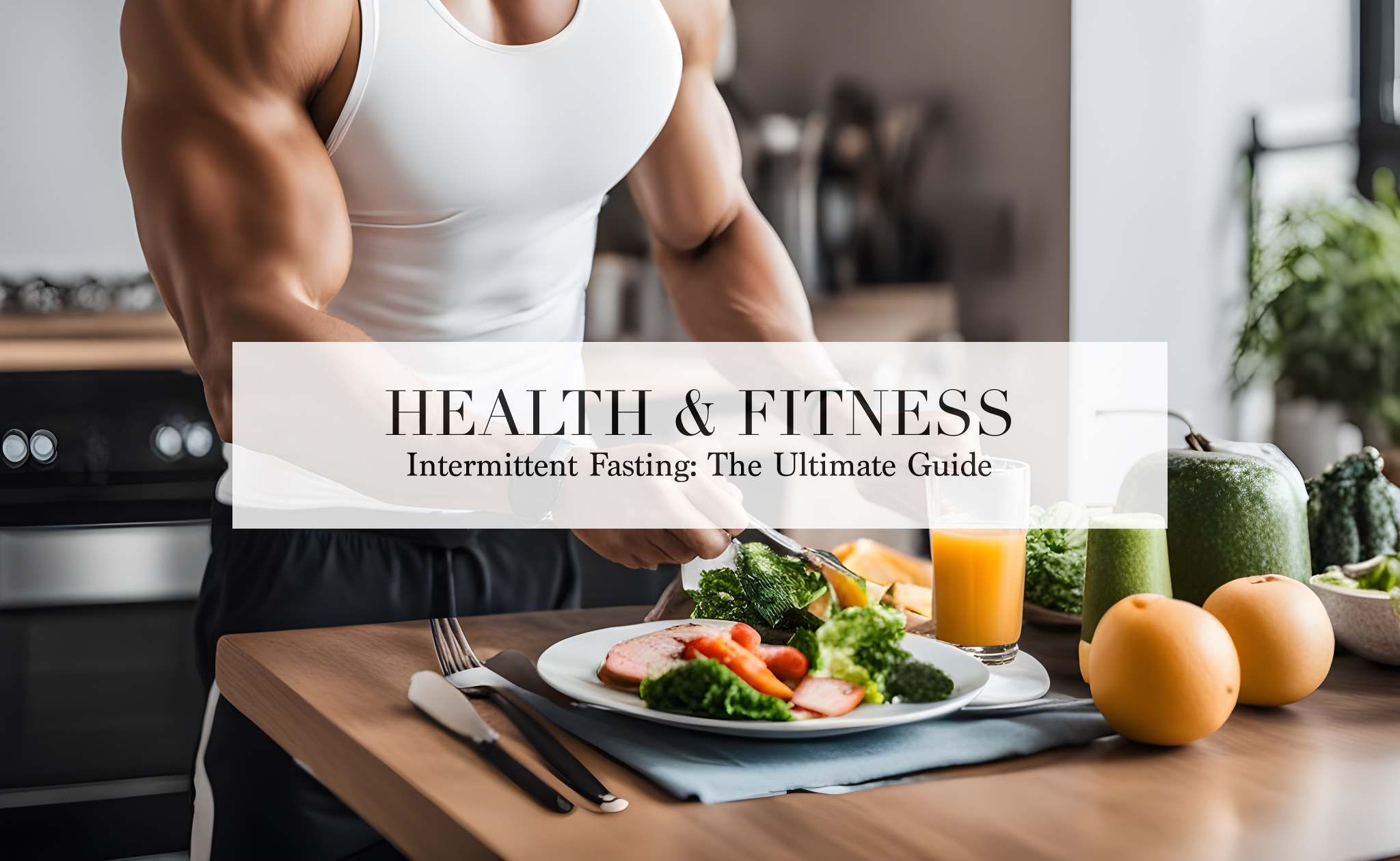Everything you need to know about intermittent fasting. A dieting strategy that may improve fat loss, while allowing muscle growth and development.
Intermittent fasting (IF) is one of the most popular weight loss methods within the fitness industry and there are many health benefits that come with it too.
Intermittent fasting isn’t a diet as such, it doesn’t emphasis the types of foods you eat, instead involves placing controls over the eating pattern.
In recent years, IF has gained immense popularity as a holistic approach to health and fitness. This practice involves alternating periods of eating with periods of fasting, and it has shown promising results in various aspects of well-being. In this comprehensive guide, we will delve into the science behind intermittent fasting, its benefits, and how to implement it effectively in your lifestyle.
What is Intermittent Fasting?
Intermittent fasting is not a diet, but rather an eating pattern that cycles between periods of eating and fasting. It doesn’t dictate which foods you should eat, but rather when you should eat them. There are several popular methods of intermittent fasting, including the 16/8 method, the 5:2 diet, and the Eat-Stop-Eat method. Each of these approaches varies in the length and frequency of fasting periods.

How Does Intermittent Fasting Work?
When we eat, our body converts food into glucose, which is used for energy. Any excess glucose is stored as fat. During fasting periods, when glucose levels drop, the body starts using stored fat for energy. This shift from glucose to fat metabolism can lead to numerous health benefits.
Additionally, fasting triggers cellular repair processes, including autophagy, a process where the body cleans out damaged cells and regenerates new, healthy ones. This has been associated with a reduced risk of various diseases, including cancer and neurodegenerative disorders.
What is The Best Feeding Window For My Needs?
The optimal feeding window varies depending on individual preferences and lifestyle. The 16/8 method, for example, involves fasting for 16 hours and eating within an 8-hour window. Some people find this fits seamlessly into their routine, while others might prefer a different approach. Experimentation is key; find a schedule that aligns with your daily life and allows you to stay consistent.
What Are The Benefits of Intermittent Fasting?
- Weight Management and Fat Loss
Intermittent fasting can be a powerful tool for weight management. By reducing the eating window, individuals tend to consume fewer calories, leading to a calorie deficit and subsequent weight loss. Additionally, fasting promotes fat utilization, aiding in shedding excess body fat. - Improved Insulin Sensitivity
Fasting helps regulate blood sugar levels by enhancing insulin sensitivity. This can be particularly beneficial for individuals with insulin resistance or type 2 diabetes. - Enhanced Cellular Repair and Longevity
As mentioned earlier, intermittent fasting promotes autophagy, which supports cellular health and longevity. This process may help protect against various age-related diseases. - Cognitive Function
Some studies suggest that intermittent fasting may have positive effects on cognitive function and brain health. It may enhance memory, focus, and reduce the risk of neurodegenerative disorders. - Reduced Inflammation
Intermittent fasting has been associated with reduced inflammation in the body. Chronic inflammation is linked to various diseases, making this benefit crucial for overall health.
What Should I Eat as My First Meal Following A Fast?
When breaking a fast, it’s important to choose nutrient-dense, whole foods to replenish your body. Opt for a balanced meal that includes lean protein, healthy fats, and a variety of fruits and vegetables. Avoid processed foods and sugary snacks, as they can lead to a rapid spike in blood sugar levels.

Should I Use Protein Supplements During A Fast?
While protein supplements can be a convenient way to meet your protein needs, it’s important to be mindful during fasting periods. Some forms of fasting, like the Eat-Stop-Eat method, involve complete abstinence from calories for a set period. In such cases, protein supplements should be avoided. However, during eating windows, incorporating high-quality protein sources like lean meats, fish, and plant-based options is encouraged.
Summary
Intermittent fasting is a flexible and effective approach to health and fitness. It harnesses the body’s natural mechanisms to promote weight loss, improve metabolic health, and support overall well-being. By finding the feeding window that suits your lifestyle and making mindful food choices, you can unlock the numerous benefits that intermittent fasting offers.
References
Mattson, M. P., Longo, V. D., & Harvie, M. (2017). Impact of intermittent fasting on health and disease processes. Ageing Research Reviews, 39, 46-58.
Anton, S. D., Moehl, K., Donahoo, W. T., Marosi, K., Lee, S. A., Mainous, A. G., … & Mattson, M. P. (2018). Flipping the Metabolic Switch: Understanding and Applying the Health Benefits of Fasting. Obesity, 26(2), 254-268.
Patterson, R. E., & Sears, D. D. (2017). Metabolic Effects of Intermittent Fasting. Annual Review of Nutrition, 37, 371-393.
Remember, it’s crucial to consult with a healthcare professional or registered dietitian before making significant changes to your diet or exercise routine.

